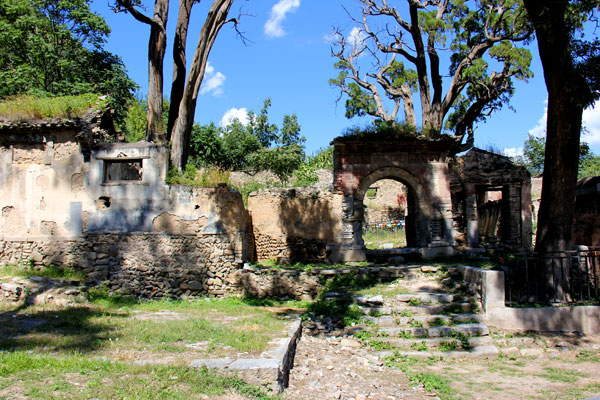Lingshui: A Charming Study of History
 0 Comment(s)
0 Comment(s) Print
Print E-mail CRI, September 21, 2012
E-mail CRI, September 21, 2012
|
Old ruins scattered throughout Lingshui, provide fodder for photographers and painters alike. |
Beijing's Mentougou District, is full of sites to visit, but Lingshui is definitely the historic highlight of the bunch. This small town is about a thousand years old, and the heady scent of history permeates its plastered rock walls, generations-old homes, and massive ancient trees.
Quaint homes have been built and rebuilt over the centuries, so there is definitely a little bit of shiny new to contrast against the crumbling ruins, but Lingshui has certainly done well to pay respects to its own history.
The mountain-encircled town is particularly renowned for having produced intellectuals. Counter-intuitively, this humble farm village somehow managed to produce 22 scholars, before the end of Imperial China. Today, the homes where said scholars came from are indicated by plaques.
Local resident Mr Tan continued on this theme of farmers who broke the mold. "Three years ago, there were seven students [from Lingshui] enrolled at universities." He also duly noted that another resident's son has become a professor at Berkeley University.
Temples are also important in Lingshui, the Nanhai Huolong Temple being one of them. Its name translates to "fire dragon" because according to Chinese philosophy, fire can resist water, thus helping to fend off the frequent floods suffered before.
"The other temple is the Temple of the Goddess," stated Tan. "A five-toed dragon was carved at the temple. Normally only four-toed dragons could be carved at that time. But this one got the Emperor's permission. Things can't be carved as you like without the Emperor's orders."







Go to Forum >>0 Comment(s)